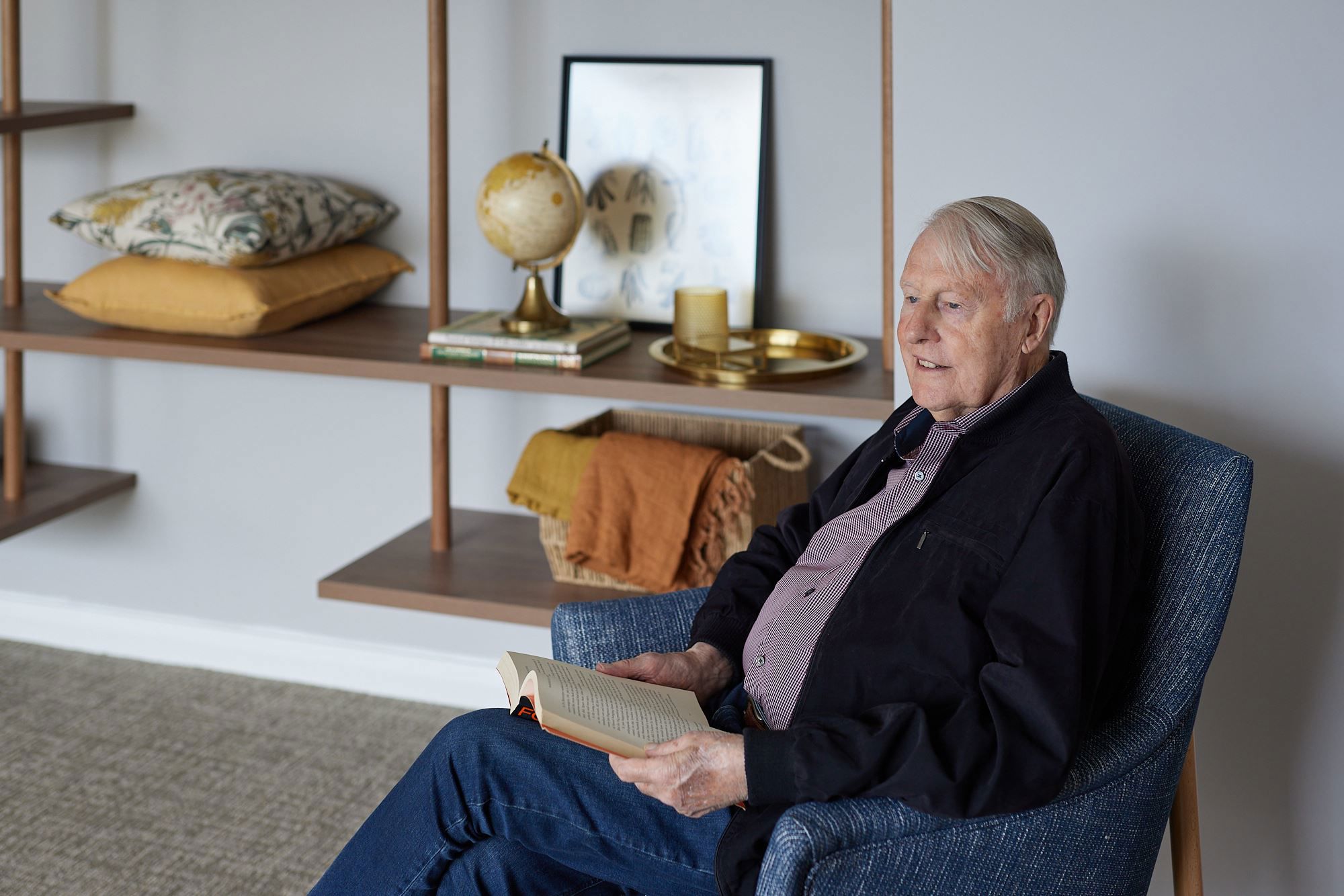
Do your loved ones know your wishes for your future health and personal care?
If so, you may have prepared an Advance Care Directive.
This is a formal instruction detailing such things as:
- Who is authorised to make medical decisions on your behalf if you are no longer capable.
- Which treatments and care you would accept or refuse if you experienced a life-threatening illness or injury.
- What ‘living well’ means to you based on your values and preferences.
Making this information available to health care providers and loved ones can reduce stress and anxiety in the later stages of life. Yet, according to a study by Advance Care Planning Australia, only 14 per cent of Australians aged 65 years and over have an Advance Care Directive.
Now, a study involving participating Brightwater at Home clients aims to change that.
Improving EARLI intervention
The title of the study is the ‘Enhanced Advance care planning and life Review Longitudinal Intervention’, also known as EARLI. It is a fitting acronym as one of the goals is to support Australians aged 65 and over to formalise their advance care wishes at an earlier stage, according to Lead Investigator, Dr Craig Sinclair.
“I've seen a lot of advance care planning work that happens at a crisis point when people go into hospital or when they go into residential care,” he says. “And often that's too late because due to their condition, these people may be unable to speak for themselves at that time.”
The EARLI study will conduct a pilot program with several hundred aged and home care clients in Western Australia and New South Wales. Participants will be guided to think and talk about what is important to them as their health and personal needs change.
Brightwater is one of 12 aged care service providers involved in the study, conducted by Dr Sinclair with researchers from the University of New South Wales and other collaborating Australian universities.
Director of the Brightwater Research Centre, Dr Angelita Martini is one of the investigators on the program.
“This study will support the discussion between a person, their family and health professionals to\ clarify goals for future healthcare in case there is a time when they are unable to make or communicate health decisions,” Dr Martini says.
“By developing intervention materials and training for staff, the study will facilitate community-based aged care services to engage in advance care planning.”
How does it work?
Participants in the study will be visited at home, over several weeks, by a trained facilitator who will guide them through conversations about their beliefs and values, drawing out what matters most to them.
Part of this will be through a process known as Life Story Work, which involves participants reflecting on the experiences, roles and relationships that have been meaningful to them across their lives.
The study aims to find if this approach will make it easier for people to then develop their own advance care plan, with support, as well as improve overall emotional and social wellbeing.
“We're hoping that telling their own story will help them identify what would matter most to them if they couldn't speak for themselves,” Dr Sinclair adds.
“It's not just about getting a form filled out but also about the really important conversations people have with their doctors, with their family members, and with their care providers.
“One of the hypotheses is that if we can help people to feel clearer about what they want themselves, they'll feel more ready to actually engage in those discussions.”
Early next year, a small number of Brightwater at Home clients will be invited to participate in the study. It is anticipated that their involvement will benefit not only them as individuals but may also help lead to more Australians having a voice in their future care.



